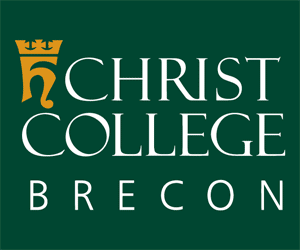Top 10 Tips On How To Help Your Child Succeed At The 11 Plus
The 11 exam is one of the most prepared-for and anticipated exams in a child’s school career. With rumours abound of children beginning tuition for the exam as early as Year 3 and ever increasing numbers flying around as to how much parents have paid to help get their children through the exam, what is the best way to help your child succeed at 11 ?
First of all, although there are probably parents who do spend a small fortune on tuition, and there are probably a few children who began training to pass the 11 exam as soon as they were able to read and write, that is certainly not the norm. Those who decide to use a tutor to help their child through the 11 usually start in Year 5, and the amounts spent on tutoring can vary depending on how much help a child needs, and the area you live in.
So how can you help your child to succeed at 11 ? Here are our thoughts:
Don’t Panic!
Yes, we all would like for our children to pass the 11 exam with flying colours and without breaking a sweat but the reality is that it is really not the end of the world if they don’t pass. Acting as if a child’s entire future depends on their passing this one exam will cause them undue stress, which will not help them in any way when it comes to sitting the exam and may cause them to resist the very idea of studying at all.
Make It Fun
Our children already attend school for several hours each day, and many will already be subject to tests and exams. If you want your child to take on yet more study to take yet another exam, you may well come up against some resistance if the idea doesn’t seem like fun to them. Find ways to make real-world examples of the questions in practice papers, and make it a team effort rather than standing over your child with a stopwatch, demanding that they get their head down and study for something they are not interested in.
Visit The School
Take your child to visit the school they will go to if they pass, and if possible introduce them to some children who already attend. Let them see the kind of environment they will be in if they pass the exam, and this should help them to stay motivated when it comes to studying.
Ask Your Current School For Help
Some schools will provide extra tuition for children who are taking the 11 exam (though others are against the idea, and will provide no help at all). Speak to your school and see if there is any help available. There is a great advantage to your child in learning in a familiar environment, among their peers and with a teacher they already know.
Do Your Research
In some areas the 11 exam consists only of verbal reasoning and non-verbal reasoning papers. In others, there are core curriculum subjects as well, and some of the content in those papers will not have been covered in normal school lessons. Find out exactly which tests are required in your area, and arm yourself with as many practice papers as you can find.
Assess Your Child’s Strengths And Weaknesses
There is no point in planning to spend the same amount of time studying for each area of the test. Each child will have their own strengths and weaknesses, and you may find that they are perfectly confident in one test area already. Assess where you stand, and where you need to put in the most work before you begin.
To Tutor Or Not To Tutor?
Many parents will decide to use a tutor to help their child through the 11 exam, but as we mentioned in our article "to tutor or not to tutor” there are pros and cons to doing this, and a child who has relied heavily on a tutor to get them through an exam will require just as much support to do well once they are attending their new school.
Set A Routine And An Agreement
Whether you use a tutor or not, set a specific day and time for 11 study, and stick to it as if it were any other after school activity. This sense of routine will help you to plan your study, and will also help your child to know what to expect. Agree with your child at the outset how much study they will put in aside from any set tutoring each week, and put this in writing so that you can both refer back to it if needed. It’s also worth agreeing now whether you will continue 11 studies through school holidays.
Beware Of Burnout!
Although you want your child to succeed and pass the 11 , it’s important not to push too hard. Excessive tutoring, practice papers or studying can cause burnout, and if pushed too hard your child may lose all interest in taking the exam. Allow plenty of time "off” for play and relaxation - and allow your child to choose what form that relaxation takes.
Agree Incentives In Advance
If you’re planning to provide an incentive for your child, agree at the outset, before any work has been done, what it will be and what the qualifiers will be. Views on incentives differ depending on who you speak to but many agree that providing a big incentive "if you get into the school” is not advisable. The incentive for passing the exam should be that they get to attend the grammar school in question. Smaller, weekly or monthly incentives if study goals have been hit can work well to maintain motivation.
Passing the 11 exam can seem like a terribly daunting task as your child approaches Year 5, but if you break the material down into manageable chunks, and use all resources available to you, it needn’t be such a big burden. The best advice we can give on this matter is to give your child as much love and support as possible along the way - and to make sure they know that they are not a failure if they don’t pass the exam. Place emphasis on trying your best, rather than passing an exam or getting into a good school. Your child might just surprise you with how well they can do with just a little guidance and support.






